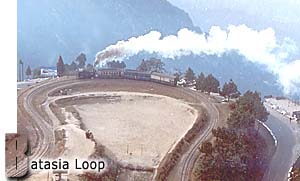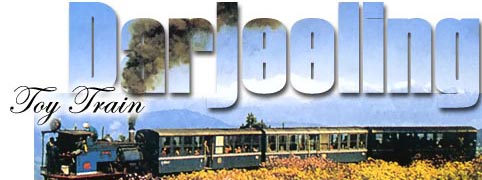| |
|
|
|
A 19th century engineering feat, this
88 km long
narrow gauge steam-railway was constructed between
1879 and 1881 ands was
responsible for the development of cc as a hill station. It remains the
best way to seethe flora & fauna of the Darjeeling hills. UNESCO has granted
it World Heritage status. See the roof of the world, travel by the Worlds' most
famous narrow gauge railway to see:
|
|
|
- DARJEELING, the queen of the Hill
Stations, where the champagne of Tea is grown.
- KANCHENJUNGA, the third highest mountain
in the world- crowning the horizon of Darjeeling.
-
HIMALAYAN SUNRISE, see the magnificent
sunrise over the Himalayas from Tiger Hill.
|
|
|
|
|
|
THE RAILWAY
|
|
|
|
|
The spectacular little line was built in 1879
in order to overcome the formidable journey by the Cart Road from Siliguri to
Darjeeling. Franklin Prestige of the Eastern Bengal Railway formed the
Darjeeling Himalayan Railway Company to build the 2 foot gauge line which
attains a height of 7407 feet at Ghoom from only 500 feet above sea level at
Siliguri. The little line attains is height by a complicated series of such
reversing stations and spiraling loops, zigzagging |
| across the road whilst the
plains and river stretch out beneath your feet. The journey culminates in
the famous Batasia Loop with the panorama of |
|
 |
|
Darjeeling and Kanchenjunga, the
world's third highest mountain, before you. The toy trains themselves are
Victorian gems. Steam hauled locomotives of the B Class, designed and built form
1889, the originals by Sharp Stewart of Glasgow, still ply their way up the
mountains.
|
|
Back to top

|
![]()

![]()
